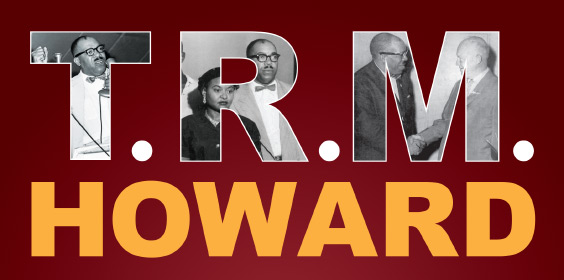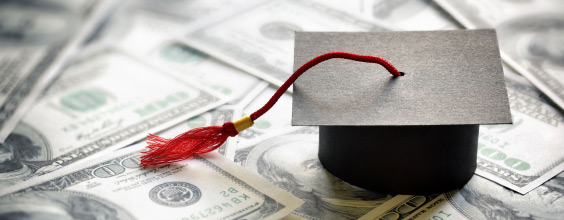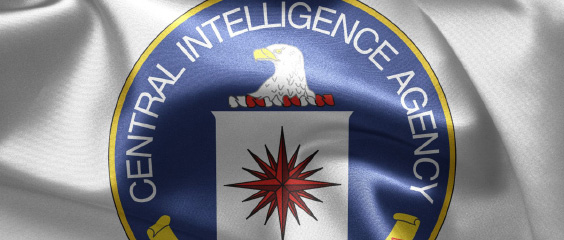The Lighthouse® is the weekly email newsletter of the Independent Institute.
Subscribe now, or browse Back Issues.
Volume 20, Issue 20: May 15, 2018
- Economic Self-Help and Self-Defense? Malcolm X and T.R.M. Howard
- Higher Ed Needs More Skin in the Game
- Consequences of Trump’s Tariffs Catch Some Workers by Surprise
- Gina Haspel for CIA Director?
- Independent Updates

Malcolm X and T.R.M. Howard took quite different paths to champion black empowerment, yet both African-American men were skeptical of Martin Luther King, Jr.’s major emphasis on advancement through politics. “Much more than he, they touted economic self-help as an essential condition for political success,” write Independent Institute Research Fellows David T. Beito and Linda Royster Beito, in an op-ed commemorating the birthday of Malcom X.
The two men also proclaimed the importance of the right to bear arms for self-defense. “Malcom cited the Second Amendment as justification to form rifle clubs to deter racist attacks, while Howard found clever ways to evade restrictions in Mississippi that prevented balks from carrying concealed pistols,” the Beitos write. “One reason whites never attacked his civil-rights rallies, which sometimes drew crowds of 10,000, was that they knew that many participants were armed and prepared to shoot back.”
Martin Luther King Jr., Malcolm X, and T.R.M. Howard were seminal figures of the civil-rights era. Each could give a rousing speech and inspire people to action. But Howard, the least remembered today, was the most versatile, having succeeded as a surgeon, organizer, and business owner/entrepreneur (insurance, home construction, and more). Born in 1908, he died of natural causes in 1976. Had Malcom and King not been assassinated, it would have been fascinating to see how they might have worked closely with Howard to advance civil rights, economic empowerment, and social progress. The life lessons of these men—especially from Howard’s amazingly successful playbook—can benefit anyone, regardless of skin color.
Malcolm X’s Forgotten Kindred Soul, by David T. Beito and Linda Royster Beito (The Hill, 5/12/18)
T. R. M. Howard: Doctor, Entrepreneur, Civil Rights Pioneer, by David T. Beito and Linda Royster Beito (Free Reader’s Guide)

Can colleges and universities become incentivized to improve student performance? Would they reliably deliver better service if they had more “skin in the game”? The question is intriguing for several reasons—and the answer looks very encouraging—according to Independent Institute Senior Fellow Richard K. Vedder.
The question is intriguing due to high dropout rates, high student-loan debt levels, and high loan-default rates. “Perhaps colleges could be made liable to repay at least part of the defaulted loan, maybe beyond a certain baseline expected default rate that arises from unanticipated adverse circumstances such as an accident or illness impeding an ability to work,” Vedder writes in a column at Forbes.
Some institutions of higher education have approached the problem by creating Income Share Agreements: Essentially the school waives some or all of the tuition payments in exchange for part of the student’s future earnings after graduation. It’s something that well-heeled private schools should look into. In Adam Smith’s day, professors earned their keep by charging students a fee to attend lectures—an inducement for good lecturing. Perhaps today’s college administrators could somehow be similarly incentivized with performance pay.
What Universities Need: More Skin in the Game, by Richard K. Vedder (Forbes, 4/30/18)
The Academy in Crisis: The Political Economy of Higher Education, edited by John W. Sommer
More on Higher Education
Video: How Do You Create Good Profit through Education?, with James N. Tooley

Workers at American Keg Company thought President Trump’s new tariffs on imported steel would make their company, which uses domestic steel, more prosperous. Layoffs at the Pottstown, Pennsylvania, firm—a result of rising steel prices—have therefore come as an unwelcomed surprise. Such consequences shouldn’t leave workers perplexed, however. According to Independent Institute Senior Fellow William F. Shughart II, steel tariffs backfired in similar fashion when President George W. Bush imposed them in 2002.
“At that time, about 187,500 Americans were employed by domestic steel producers,” write Shughart and co-author Kristian Fors, in an op-ed at Inside Sources. “That being said, more than 200,000 jobs disappeared in other industries that were directly attributable to the tariff.” Because the Bush tariffs backfired so badly, political opposition quickly formed to successfully dismantle them.
But whether the Trump import tariffs will meet a similarly rapid political demise is a different matter. The official unemployment rate is low, midterm elections are looming, and Trump voters who benefit from higher prices on imported steel are more likely to support the president. “Trump’s steel tariff could turn out to be a clever political move, if not an economically wise one—especially if the owners and employees of the companies that are hurt by the tariff don’t blame the president for their plight,” Shughart and Fors write.
Tariffs and Econ 101, by William F. Shughart II, Kristian Fors (Inside Sources, 4/10/18)
More on International Trade

In a stern rebuke of CIA-led torture of terrorism suspects during the George W. Bush presidency—and of the personnel who oversaw and supported the “enhanced interrogation”—Independent Institute Senior Fellow Ivan Eland calls for the U.S. Senate to reject the Trump administration’s nomination of CIA Deputy Director Gina Haspel to head the Central Intelligence Agency.
Despite the CIA’s public-relations campaign to portray Haspel as “committed to the rule of law,” the water-boarding and other Bush-era interrogation practices were “in clear violation of long standing U.S. and international law,” Eland writes. Haspel, he explains, “oversaw a secret CIA prison in Thailand where torture was reportedly committed and then was complicit in destroying the videos of such horrendous human rights abuse.”
In her May 9 testimony before the Senate Intelligence Committee, Haspel claims she would never again support now-discredited torture practices. Is her mea culpa an exoneration or even credible? Here it may be worth pondering committee findings published in 2015. The CIA, it was determined, had “repeatedly provided inaccurate information to the Department of Justice, impeding a proper legal analysis of the CIA’s Detention and Interrogation Program.” In addition to the White House and Congress, the CIA misled even its own Office of Inspector General. In this light, it’s mystifying to see how anyone could believe that Haspel—a CIA-torture “insider”—could provide the credibility and leadership necessary for rehabilitating an agency that has so egregiously violated the public trust.
The Senate Should Nix the Nomination of Gina Haspel to Lead the CIA, by Ivan Eland (Wisconsin State Journal, 5/11/18)
Eleven Presidents: Promises vs. Results in Achieving Limited Government, by Ivan Eland
More on Terrorism and Homeland Security
Independent Updates
The Beacon: New Blog Posts
- A Hidden Cost of Inflation, by Randall Holcombe
- Cultural Appropriation and Cultural Imperialism, by Randall Holcombe
- Free Traders Should Be More Careful When Defending Trade Deficits, by Robert Murphy
MyGovCost: New Blog Posts
- White House Attempts to Claw Back $15 Billion, by Craig Eyermann
- George Deukmejian and the Protection of Taxpayer Dollars, by K. Lloyd Billingsley
- Record Budget Surplus for U.S. Government in April, by Craig Eyermann
- The Sexual Abuse Inherent in the System, by K. Lloyd Billingsley
- Deadly Government Education Abuse, by K. Lloyd Billingsley






